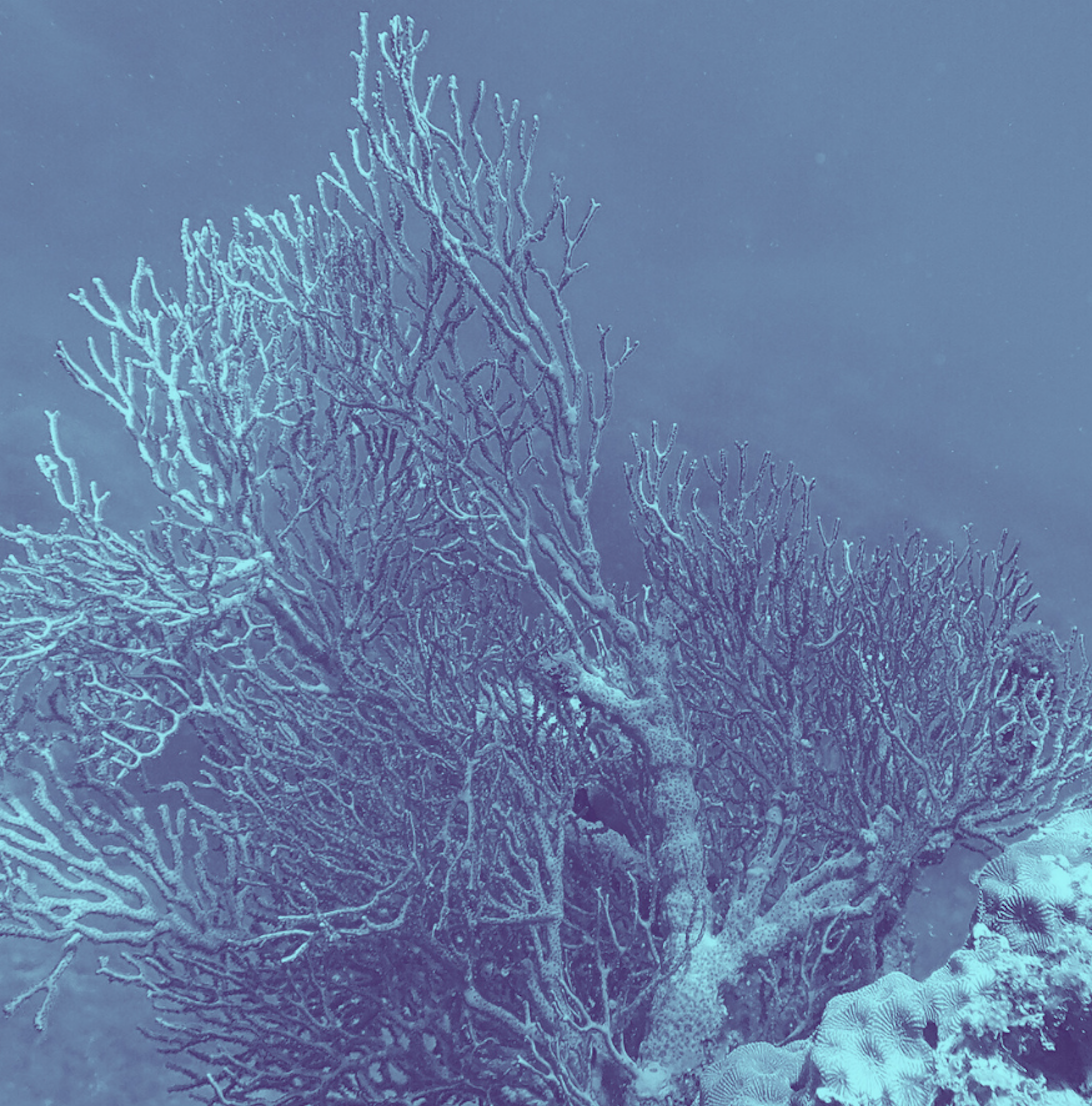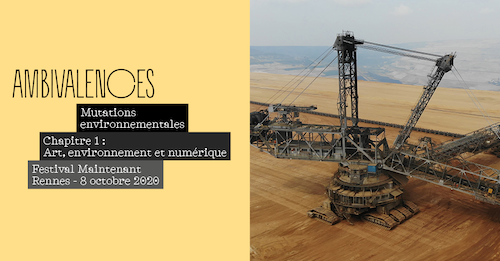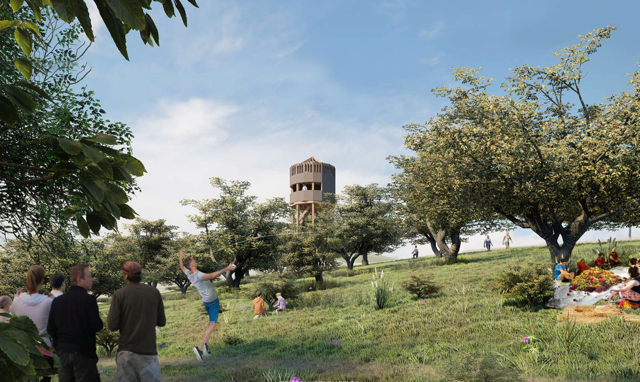
Call for entries: Deniz Villaları – Ecological Crossings
We’re delighted to announce our partnership with the Institut français de Turquie and the Goethe-Institut Türkei in their call for…
Published on 8 October 2020
CHAPTER 1 : Art, environment and digital
Festival Maintenant – Rennes – Thursday, October 8, 2020
This first chapter will attempt to present a state of the art, digital and environment relations and to question their inter-relations. How is art in general and digital art in particular evolving in the face of the environmental crisis? How do artists deal with this reality and position themselves in relation to these issues? Can they contribute to awareness and encourage public and citizen action by positioning themselves as observers and defenders of living things?
This round-table discussion focused on the ambivalent and contemporary relationship of the artist to the environment, both ecological and technological, and more specifically on the role of digital arts in the awareness of the environmental crisis.
The conference is available in replay
HERE
Moderation:
Régine Debatty
Reporter, art critic and founder of we-make-money-not-art.com
Participants:
Régine Debatty we-make-money-not-art.com / Instagram / Twitter
Reporter, art critic (we-make-money-not-art.com)
***
Claire Bardainne adrienm-claireb.net / Facebook / Instagram / Twitter
Artist, artistic director (Adrien M & Claire B company)
***
Loïc Fel projectcoal.org / Facebook
Doctor of Philosophy in Environment, co-founder of COAL
***
Joanie Lemercier joanielemercier.com / Facebook / Instagram / Twitter
Visual artist and environmental activist
In a society plagued by the resurgence and constancy of environmental, social, cultural, economic, political and sanitary crises, the digitization of our lives makes the reading and analysis of current mutations all the more complex. Starting from the premise that digital technology is not “neutral” and that it is appropriate to re-contextualize the work of artists and the place of art in relation to contemporary issues, the desire to explore the theme of ambivalence intersects with several reflections:
– Ambivalence of digital technology on the one hand, presented as a solution to various current problems or as intangible progress in itself (“technological solutionism”), without this necessarily being questioned, but leading to negative effects on various levels (environmental impact, privacy, disproportionate weight of certain actors, etc.) which must be questioned.
– Ambivalence of the digital art on the other hand and of its actors (of which we are), who contribute to make emerge critics while participating in a form of banalization, of acceptability and of diffusion of digital technologies.
The objective of these meetings is to open up times of shared reflection aimed at exploring the mutations (positive and negative) generated by the technical development of our societies on different levels (environment, society, politics…), as well as the internal lines of tension running through these techniques.
The role of art, as a source of questioning, interrogation and criticism, seems to us essential to explore these questions and issues. The “artist’s” point of view, through his creation, his production process and the experience he proposes, allows us to cross all the themes addressed and constitutes the framework of a collective reflection. This “entry” allows us to talk about the environment, the living and the political while maintaining a precise and stable guideline.
The predictive thought of the artist, made as much of his intimate prospection as of the acuity of his senses allows moreover to explore probable, desirable, desirable, obsolete, constrained, defective futures, to write speculative scenarios and to extract us from the dichotomy utopia (the technique is going to save us) / dystopia (there is nothing more to do).
The health crisis linked to COVID-19 puts many questions into perspective and modestly implies reconsidering our models, our achievements and our practices. The time is marked by uncertainty, and while we cannot answer it, we can ask questions and suggest that informed and open thinking is a good start. The notion of mutation obviously echoes the viral nature of this crisis, which profoundly affects our individual and collective perception of what makes or should make “society”.
We’re delighted to announce our partnership with the Institut français de Turquie and the Goethe-Institut Türkei in their call for…
Since 2022, as part of the Pays de l’Arbresle’s “Les murmures du Temps” art trail, Thierry Boutonnier has been sending…
Since 2022, as part of the Pays de l’Arbresle’s “Les murmures du Temps” art trail, Thierry Boutonnier has been sending…

